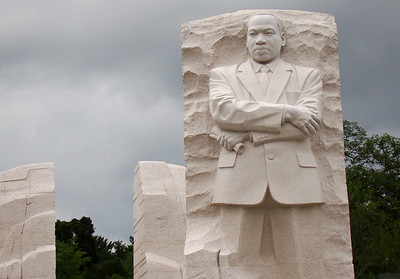Organized Religion
Back in August, vampire author Anne Rice gave an interview on ABC’s Nightline. She kept referring to “organized religion” and Christianity as if the two were synonymous.
Back in August, vampire author Anne Rice gave an interview on ABC’s Nightline. She kept referring to “organized religion” and Christianity as if the two were synonymous.
Self-described an atheist, Anne Rice made headlines when in 2005 she professed her conversion to Christianity, which she said took place in 1998. But the backlash this summer when she announced, “I quit being a Christian” caused even bigger shock waves.
“I remain committed to Christ as always but not to being ‘Christian’ or being part of Christianity. It’s simply impossible for me to ‘belong’ to this quarrelsome, hostile, disputatious, and deservedly infamous group …” http://www.annerice.com/
Brought up in the Catholic Church, Anne returned to familiar surroundings and religious practices. She said she will miss the liturgy and ritual—“eventually”—but she described herself as too angry and confused to be there.
In church she felt, “I want God to be the center of my life, and somehow, I’m in bed with the devil … Church should be the place that makes you feel close to God.”
She described the “toxic anger” that built up inside of her as she contemplated the church’s contradictions, namely that funds given to the church are spent, among other things, persecuting homosexuals and oppressing women. “I’m not part of this.”
“I think the persecution of gays is evil,” she said. Rice’s son, Christopher, is gay.
“I feel called to move away from all of it. I don’t want to be in the dispute.” Guilt by association, Anne Rice has washed her hands of all organized religion. That leaves her, I guess, with disorganized religion. The kind many people prefer these days.
According to that same ABC News segment, 17% of Americans say they have no religion, organized or otherwise.
Although Anne Rice continues to affirm her faith in Christ, “every time I get the chance,” she also insists that a person can follow Christ without Christianity. http://www.christianitytoday.com/ct/2010/augustweb-only/43-21.0.html
Ka-ching! Anne Rice has found her personal Savior as well as her personal excuse for not going to church. Classic Post-modern reasoning.
What’s wrong with this picture?
The biblical term Christian describes a relationship to Jesus Christ rather than affiliation with institutionalized religion. Membership in a visible church, a particular denomination or a local fellowship of believers reflects temporary identity with a specific congregation.
My own experience with organized religion might have led to some of Rice’s same conclusions. Had I confused the visible institution with an invisible, organic relationship with the Creator, I might applaud her dissent. Still, I can’t throw stones. My story has twists and turns as well.
I feel her pain. I share the shame for Christians behaving badly. Nobody knows the trouble I have had reconciling Christianity with some of the institutions that represent faith in Jesus Christ. Alas, I still go to church believing that God expects believers to function from within a community of faith. Sometimes I hear the music and sometimes I don’t.
Work out your own salvation with fear and trembling is misunderstood if applied as biblical endorsement to work it out by yourself (Phil 2:12; cf. Hebrews 10:25). Because of Jesus Christ, God has sustained me and enabled me to persevere in His church despite disillusionment from myriad variations on a theme of organized religion.
Like it or not, the organized church, its leadership and the people who populate the pews continue to represent—and misrepresent—the God of the Bible.



